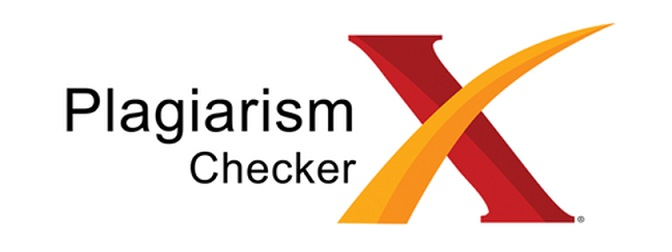Penerapan Differential Reinforcement of Alternative Behavior dalam Mereduksi Perilaku Adiksi Smartphone di SMP Negeri 51 Surabaya
DOI:
https://doi.org/10.55681/swarna.v3i6.1340Keywords:
Adiksi, Differential Reinforcement Of Alternative Behavior, Mereduksi, Perilaku AdiksiAbstract
Smartphones in the digital age are an inseparable object in everyday life. Both parents and children are its users. The use of smartphones if not used wisely will have a negative impact, one of which is addiction. Smartphone addiction is also often found in the school environment, due to the lack of self-control and time management skills so that it disrupts their activities. This results in problems such as withdrawal, decreased direct or face-to-face interaction, decreased grades, lack of focus and making individuals less sensitive to the surrounding environment. The method used in this community service uses qualitative with the type of guidance and counseling action research (PTBK) using differential reinforcement of alternative behavior techniques. The selection of the technique aims to reduce unwanted behavior by replacing other alternative behaviors that are based on the interest of students. Other alternatives that are considered capable of reducing these behaviors such as reading books, paskibraka, hanging out with friends, and also cooking activities. The results of the community service obtained that the differential reinforcement of alternative behavior technique is effectively applied to junior high school children to reduce smartphone addiction with changes according to the desired target.
Downloads
References
Ardawijaya, R. P., &Kuntoro, I. A. (2019). Penerapan Differential Reinforcement Of Alternative Behavior Dan Antscendens Control Untuk Menurunkan ScreenTime Pada Anak Dengan Language Disorder. Jurnal Psikologi Sains Dan Profesi (Journal Psychology of Science and Profession, 3(1),57-64
Budiono, Suko. (2021). Konseling Kreatif dan Inovasi dalam Penelitian Tindakan Bidang Bimbingan dan Konseling. Jurnal Action;Inovasi Penelitian Tindakan Kelas dan Sekolah, 1(1), 62-68.
Cumhur, Y. E. (2019). Upaya Orang tua untuk Mencegah Ketergantungan Anak Usia Dini di Pasir Kaliki Tengah dari Penggunaan Gadget. Journal of Wind Engineering and Industrial Aerodynamics, 26(1), 1–4.
Gomes, F. De. (2015). Prosedur Pengubahan Tingkah Laku Dalam Perspektif Behaviorisme. Jurnal Pendidikan Dan Kebudayaan Missio, 7(2), 285–298.
Gunawan, R., Aulia, S., Supeno, H., Wijanarko, A., Uwiringiyama, J. P., & Mahayana, D. (2021). Adiksi Media Sosial dan Gadget bagi Pengguna Internet di Indonesia. Techno-Socia Ekonomika, 14(1), 1–14.
Kurniawan, A., Et al. (2023). Pengaruh Bimbingan Belajar Berpendekatan Behavioristik Terhadap Peningkatan Prestasi Belajar Peserta didik SMP Ki Gede Sebayu Balapuoang Tegal Tahun Pelajaran 2020)/2021 (Studi PTBK Pada Peserta Didik Kelas VIII A). Seminar Nasional Literasi Pedagogi
Lestari, R., & Sulian, I. (2020). Faktor-Faktor Penyebab Siswa Kecanduan Handphone Studi Deskriptif Pada Siswa Di Smp Negeri 13 Kota Bengkulu. Consilia : Jurnal Ilmiah Bimbingan Dan Konseling, 3(1), 23–37.
Mace, F.C. et al. (2010). Differential Reinforcement of Alternative Behavior Increases Resistance To Extinction: Clinical Demonstration, Animal Modeling, and Clinical Test of One Solution. Journal of the Experimental Analysis of Behavior, 93(3), 349–367. https://doi.org/10.1901/jeab.2010.93-349.
Manuardi, A. R. (2019). Kedudukan penelitian Tindakan Dalam Bimbingan dan Konseling: Konsep, Karakteristik, Prinsip. Jurnal Quanta, 3(3), 101-109.
Mukarromah, Tsatul, T. (2021). Modifikasi Perilaku Pada Anak Usia 0-8 Tahun Dengan gangguan perilaku makan (Pica Disorder) Karena Kelalaian Orang Tua: Studi Literatur. Jurnal Ilmiah PTK PNF, 16(2), 96–108.
Mulyana, A. D. (2013). Akhlak Remaja Pecandu Gadget di Lingkungan Kuwung, Desa Meri, Mojokerto. Journal Information, 2(30), 1–17.
Ningsih, D. (2022). Pengaruh Adiksi Gadget Terhadap Minat Belajar Siswa Kelas XI IPS SMA Negeri 1 Ngawen. Jurnal Pendidikan Dan Konseling (JPDK), 4(5), 7894–7899.
Nursikuwagus, A., Hikmawati, E., Wisesty, U., Munggana, W., & Mahayana, D. (2020). Kajian Saintifik Fenomena Adiksi Gadget dan Media Sosial di Indonesia. Jurnal Teknologi Dan Informasi, 10(1), 25–39
Vijaya Lakshmi, N. (2019). Behavior Modification Techniques-An Awwarnes Study, Shalat Internasional. Journal of Education, 7(2), 20-24.
Downloads
Published
How to Cite
Issue
Section
License
Copyright (c) 2024 Bakhrudin All Habsy, Putri Awalia Zahro, Erika Winda Mustika, Durrotun Nafisah

This work is licensed under a Creative Commons Attribution-ShareAlike 4.0 International License.












